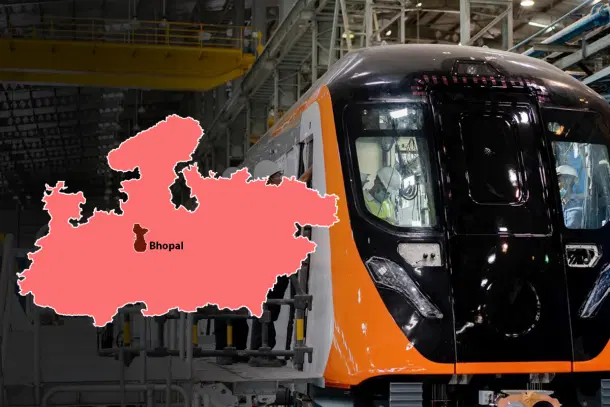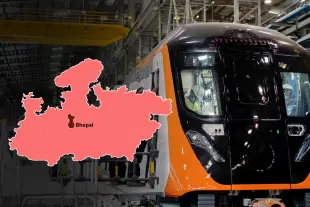News Brief
MP: Bhopal Metro Set For Mid-2025 Launch As Safety Inspections Begin, To Connect AIIMS With Subhash Nagar Depot
Arjun Brij
Mar 04, 2025, 01:47 PM | Updated 01:47 PM IST
Save & read from anywhere!
Bookmark stories for easy access on any device or the Swarajya app.


The Bhopal Metro project is progressing steadily, with operations expected to commence by mid-2025.
The priority corridor, stretching from Subhash Nagar Depot to AIIMS Bhopal, is set to undergo extensive safety and technical inspections in March, according to official sources, reported Times of India.
The Madhya Pradesh Metro Rail Corporation Limited (MPMRCL) has successfully completed critical construction and system integration milestones.
The inspection process will be overseen by the Research Designs and Standards Organisation, in conjunction with the Clearance and Safety Certification for Metro Systems under Indian Railways, ensuring adherence to stringent safety protocols.
Designed for efficiency, the Bhopal Metro boasts state-of-the-art signalling technology, modern rolling stock, and robust safety infrastructure.
The railway lines are constructed to support speeds of up to 90 kilometres per hour, significantly enhancing connectivity across the city.
Stations will feature platform screen doors, digital ticketing systems, and real-time passenger information displays.
The first phase of the Metro network prioritises a corridor linking AIIMS Bhopal, Alkapuri, Habibganj Naka, MP Nagar Zone-1, Arera Hills, Kendriya Vidyalaya, and Subhash Nagar Depot.
Upon full completion, the line will extend to Karond, integrating major residential and commercial hubs. Accessibility is a key focus, with stations equipped with lifts, escalators, and facilities for passengers with mobility challenges.
The Metro carriages will offer comfortable seating, designated areas for women, and emergency communication systems. Officials emphasise that the project upholds environmental standards, incorporating noise control measures at stations and depots.
Authorities anticipate the Metro system will alleviate traffic congestion and improve air quality in Bhopal, providing a reliable and sustainable transport alternative.
While the certification process involves rigorous evaluation of all Metro components, trial runs of empty trains will continue until final safety approvals are secured.
Additionally, staff are undergoing extensive training in operations, maintenance, and emergency response protocols.
Arjun Brij is an Editorial Associate at Swarajya. He tweets at @arjun_brij





